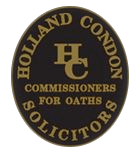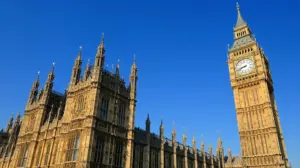The Law Society of Ireland have voted ( by 22 votes to 9) in favour of backing a YES vote in this months same-sex marriage referendum. Essentially, their position is based on equality.
The society commissioned a position paper on the matter. It raised interesting facts and legal cases from other jurisdictions highlighting the equality issues.
Currently, same-sex couples can only enter civil partnerships and, while these unions share many features with civil marriage, there are in fact several statutory differences between them. Broadly, these include three key areas of difference:
- Marriage is recognised as being deserving of special protection by the Constitution;
- Currently, only one civil partner may have a legal relationship with a child. Civil partners and the children they raise are not legally regarded as a family; and
- The requirements for dissolution of a civil partnership are less onerous than those required for dissolution of a civil marriage (i.e., divorce).
In basic legal terms, civil marriage and civil partnership are not the same and do not afford an equal level of rights and protections to opposite-sex and same-sex couples.
The inalienable and imprescriptible rights of the family are protected by the state in its constitution and authority. This protection has traditionally been interpreted by the courts as being dependent on whether the family is marital or non-marital. This means, under current law, there is a significant difference in the level of recognition and protection afforded by the state to same-sex couples compared to opposite-sex couples.
Society changes and eventually the law catches up. With the passage of the divorce referendum in 1995, the state and societal definition of legal marriage changed. It’s time for the definition to change again.
Marriage equality has been examined by courts in other jurisdictions ;_
The California Supreme Court in 2008, in the case of ‘In re Marriage Cases’, held that there was there was no “compelling state interest” to justify the retention of the traditional definition of marriage as being limited to opposite-sex couples and emphatically rejected that narrow definition: First, the exclusion of same-sex couples from the designation of marriage clearly is not necessary in order to afford full protection to all of the rights and benefits that currently are enjoyed by married opposite-sex couples; permitting same-sex couples access to the designation of marriage will not deprive opposite-sex couples of any rights and will not alter the legal framework of the institution of marriage, because same-sex couples who choose to marry will be subject to the same obligations and duties that currently are imposed on married opposite-sex couples. Second, retaining the traditional definition of marriage and affording same-sex couples only a separate and differently named family relationship will, as a realistic matter, impose appreciable harm on same-sex couples and their children, because denying such couples access to the familiar and highly favoured designation of marriage is likely to cast doubt on whether the official family relationship of same-sex couples enjoys dignity equal to that of opposite-sex couples. Third, because of the widespread disparagement that gay individuals historically have faced, it is all the more probable that excluding same-sex couples from the legal institution of marriage is likely to be viewed as reflecting an official view that their committed relationships are of lesser stature than the comparable relationships of opposite-sex couples. Finally, retaining the designation of marriage exclusively for opposite-sex couples and providing only a separate and distinct designation for same-sex couples may well have the effect of perpetuating a more general premise — now emphatically rejected by this state — that gay individuals and same-sex couples are in some respects “second-class citizens” who may, under the law, be treated differently from, and less favourably than, heterosexual individuals or opposite-sex couples.
The South African Constitutional Court also struck down a prohibition of same-sex marriage in the strongest of terms, by focussing on what could be considered as a legal right to equality of treatment or opportunity. It stated: “Yet what is in issue is not the decision to be taken, but the choice that is available. If heterosexual couples have the option of deciding whether to marry or not, so should same-sex couples have the choice as whether to seek to achieve a status and a set of entitlements and responsibilities on a par with those enjoyed by heterosexual couples. It follows that, given the centrality attributed to marriage and its consequences in our culture, to deny same-sex couples a choice in this respect is to negate their right to self-definition in a most profound way.”




